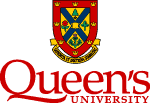 |
CISC/CMPE422/835: Formal Methods in Software Engineering (Fall 2023)
Home page[Home] |
Instructor
Juergen Dingel,
Goodwin Hall 723, dingel at queensu dot ca
Syllabus
The course syllabus can be found here.
More information
For more information about the course, including assignments, material, etc, please log into onQ with your Queen's credentials or contact the instructor.